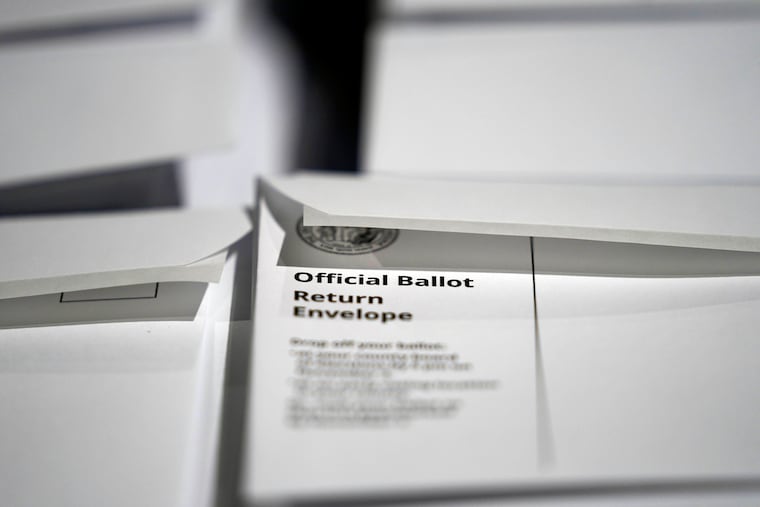COVID-19 response, health-care costs, pre-existing conditions top health concerns for voters
Health care is a top concern for voters and could play an important role in swing states like Pennsylvania.

The coronavirus pandemic, health-care costs, and insurance protections for preexisting conditions are top health-care concerns for voters in Pennsylvania and other battleground states — and ones they believe Vice President Joe Biden is more likely to address, according to a new survey by the Commonwealth Fund.
Health care is consistently a top concern for voters and has become an even more pressing issue for many during the pandemic. Thousands of people lost their employer-sponsored health plans due to a layoff, while others may be struggling to cover routine health costs, such as premiums and co-pays, when money is tight. What’s more, the high cost of a COVID-19 hospital stay, which could run tens of thousands of dollars for people who are uninsured or go to an out-of-network provider, has made people more aware of the importance of having health insurance.
“I think [the coronavirus pandemic] has underscored the problems people experience in our health-care system,” said Sara Collins, vice president of health-care coverage and access at the Commonwealth Fund.
In the latest Pew Research Center poll, voters ranked health care their second voting priority — just below the economy — heading into the 2020 presidential election, with 68% saying it was “very important” in their voting decision. The coronavirus pandemic was voters' fourth most pressing concern, with 62% saying it would be a major factor in how they vote this fall, according to Pew.
The Commonwealth Fund’s findings offer greater insight into how voters' health care concerns may influence voting in key states.
The report was based on a survey of 7,442 adults nationally, with particular attention to 10 battleground states, including Pennsylvania. The survey first asked voters how important health-care issues are to their decision at the polls. Only 9% said health care was not important in their decision.
» READ MORE: As CDC reverses itself on COVID-19, Americans are losing trust, warn public-health veterans
Those who said health care was somewhat to very important were asked which issues were of greatest concern in selecting a presidential candidate: Ability to address the public health and economic challenges of the coronavirus pandemic, likelihood of protecting insurance coverage for people with preexisting conditions, or likelihood of lowering health-care costs.
Pennsylvania respondents said protecting insurance coverage for people with preexisting conditions was their most important health-care concern, followed by the candidate’s ability to address the coronavirus pandemic.
More than half of voters surveyed in Pennsylvania said they had greater confidence that Biden would be better able to address these health-care issues.
The Trump administration is supporting a lawsuit that seeks to invalidate the Affordable Care Act, including its ban on insurance plans denying coverage or charging exorbitant prices to people with preexisting conditions. In the past, a preexisting condition could be anything that could make an individual more expensive to insure, such as cancer, heart problems, a history of smoking, asthma and even acne. Treatment for COVID-19 would likely also count as a preexisting condition should the ACA’s protections be eliminated, Collins said.
The Supreme Court is expected to hear arguments in the case after the election.
One limitation of the survey is a relatively high margin of error for state-specific findings, since the sample size for any given state is much smaller than the total survey group. The report’s findings for Pennsylvania have a margin of error of 5.7% and a sample size of 451 people.
Pennsylvania’s survey results are largely in line with its national findings, which have a much smaller margin of error of 1.7%.
In addition to asking about voters' health-care priorities, the report sought to gauge how the pandemic may affect voting turnout.
Nationally and in Pennsylvania, about half of voters said they would feel safe voting in person, if the election were the day they took the survey. But responses vary dramatically by political affiliation, with 74% of Republicans and just 28% of Democrats saying they believed in-person voting was safe.
About a third of survey respondents said they felt confident that their vote would be counted if submitted by mail.